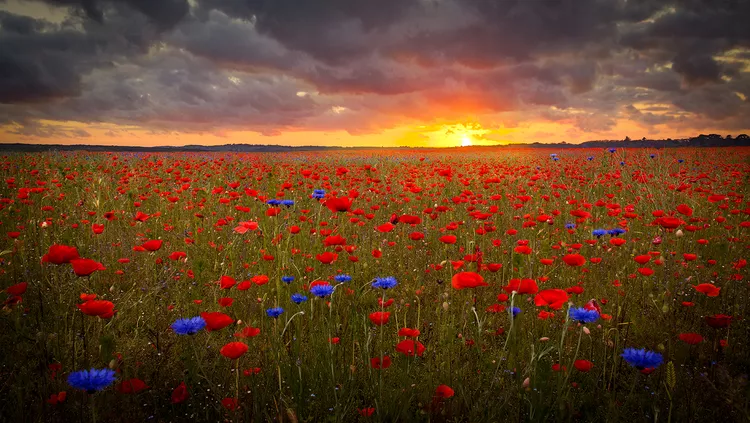Scandinavia Weather in March
March in Scandinavia or the Nordic region is an excellent month for travel as it falls in the off-season. Therefore, travelers can secure better rates for their trips. Although summer activities usually commence in March or April, the weather during spring can still be quite wet, with temperatures beginning to rise. The dreary winter days are behind us, providing much more daylight. Additionally, it’s possible to enjoy a late ski trip in Norway’s ski resorts.
During the spring, the climate can be unstable with potential late winter storms near the North Sea in March, but overall, the air is warming up.
- Average high: 42 degrees Fahrenheit (6 degrees Celsius)
- Average low: 25 degrees Fahrenheit (-4 degrees Celsius)
The different regions of Scandinavia experience varied climates. Denmark follows a marine west coast climate, and Copenhagen might even experience snowfall in March, although accumulation is unlikely. The central part has a more humid continental climate and tends to be warmer than the areas to the north. The mountainous regions boast an alpine tundra climate with extremely cold temperatures, ideal for skiing. In the southern half, flowers start to bloom in spring, and the length of daylight increases to nine to ten hours.
What to Pack
Lighter coats are a necessity for the spring months in Scandinavia. Since mornings and evenings can be quite chilly, it’s advisable to bring sweaters, cardigans, or jackets for easy layering. Raincoats and windbreakers are also sensible choices year-round. Comfortable shoes that can withstand rugged adventures are essential, especially for those wanting to partake in outdoor activities.
March Events and Things to See in Scandinavia
Events in March revolve around the arrival of spring and the extended daylight hours. Festivals, natural phenomena, and annual holidays provide a rich experience for visitors. Travelers can celebrate items like waffles and beer, enjoy sporting events, attend fashion expos, or revel in music festivals that are on par with international events.
- Northern Lights: Thanks to its northern positioning and proximity to the North Pole, Scandinavian countries offer unique natural phenomena to witness. Don’t miss the opportunity to see the aurora borealis, or northern lights, which can be seen until April. Other phenomena like the polar night and polar day effect, including the midnight sun, are fascinating attractions.
- Easter: Easter dates can fluctuate in March (and occasionally April). The holiday includes Palm Sunday, Maundy Thursday, Good Friday, Easter Sunday, and Easter Monday. Traditions vary across Scandinavia, with unique customs such as children dressing as witches in Sweden, reminiscent of the country’s witch hunt history. This resembles America’s Halloween tradition, as they go door-to-door collecting treats. Before Christianity, Easter was linked to the spring equinox, celebrating the arrival of spring.
- Mysteries: In Denmark, kids creatively craft intricate letters, known as gækkebreve, for friends and family, prompting guesses about the sender. Meanwhile, detective novels and mystery-themed shows gain popularity in Norway during March.
- Raw Air Skiing Competition: March hosts numerous skiing events in Norway, presenting an ideal time for a ski vacation once the winter’s harshest conditions begin to ease. The Raw Air, an extreme ski jumping and ski flying competition, takes place across several locations, commencing in Holmenkollen and concluding with a super final in Vikersund.
- Beer Day: Iceland celebrates the end of prohibition with Beer Day on March 1, commemorating the end of a law that lasted from January 1, 1915, to March 1, 1989.
- Waffle Day: March 25 marks the celebration of waffles in Sweden. The name stems from the Swedish term Vårfrudagen, translating to Our Lady’s Day (Feast of the Annunciation), originally having religious significance.
- Reykjavik Blues Festival: Late March to early April features this music festival, spotlighting renowned blues artists from around the globe.
- Copenhagen Fashion Week: Dazzling runway shows attract designers, celebrities, and artists to Copenhagen in late March.
March Travel Tips
- If visiting during Easter, it’s wise to secure accommodations well in advance.
- The Northern Lights can be elusive; hence, it’s recommended to check weather updates online to estimate your chances before heading out.
- Due to snowfall, March serves as an excellent time for skiing resorts. Renting ski equipment at the destination is usually more convenient than bringing your own.
Post Views: 219





